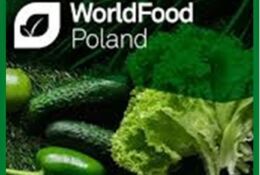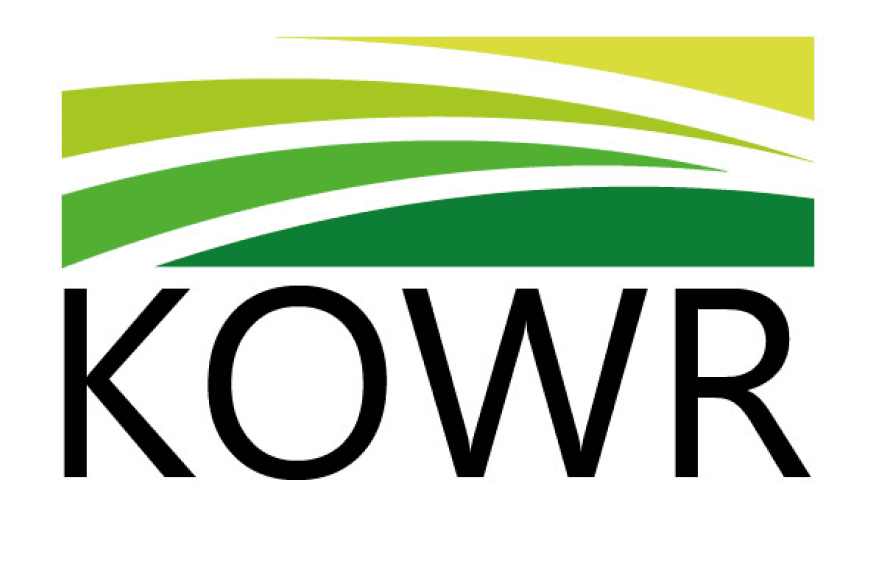Poland – an attractive location for foreign investors
19.06.2024
Reorganized supply chains, an increasingly demanding labour market, business expectations – these are some of the most important challenges that shape the future of the European production sector in terms of taking responsibility for environmental issues, rising prices of energy, materials and components. Poland remains attractive for significant foreign industrial investment thanks to its location, business environment, infrastructure and incentives available under government business support programs.

In 2023, a record EUR 7.4 billion of foreign investments flowed into the country, with the support of PAIH, mainly in the electronics, electromobility, automotive, machinery, renewable energy components and food processing sectors. JLL Polska, the Polish Investment and Trade Agency, Hays and ALTO present the next edition of the “Made in Poland” report, a compendium of knowledge for companies from the manufacturing industry sector that are considering establishing or expanding their presence in Poland.
The report focuses on the industrial production sector and covers issues related to the business environment, labour market, legal and tax structures, as well as subsidies and public support programs. It also presents trends in the real estate market and various purchase and rental options.
The authors of the study draw attention to the business benefits resulting from Poland’s convenient location on the map of Europe. The transport infrastructure in Poland, which is an important part of the European road and rail transport network, is constantly developing. Currently, it allows connections with most European capitals. The intersection of two key corridors, namely the A1 (Baltic-Adriatic Sea) and A2 (North Sea-Baltic States) motorways, has increased Poland’s attractiveness in terms of European logistics in the region. The Polish road network will be further expanded with new routes, and existing roads are being modernized. Moreover, Poland offers access to two significant seaports in Gdańsk and Szczecin. It is worth emphasizing that the total throughput of the 15 largest European container ports amounted to 79.7 million TEU in 2023 (from the first to the third quarter), of which Gdańsk accounted for 3% of this result. Poland also has a chance to take advantage of the “new Silk Road”, which connects Europe with China by rail. This is a chance to strengthen Poland’s position as a key European distribution HUB for producers from China and other countries from distant Asia.
Poland is the sixth largest industrial real estate market in Europe
The industrial real estate market in Poland and throughout Europe is experiencing continuous growth. After the challenges of 2021 and 2022, the sector has proven its resilience, and market participants expect relative stability in the coming years. Poland is the sixth largest industrial real estate market in Europe, with a diversified and modern asset portfolio. Rental rates for warehouse space are among the lowest in Europe and vary depending on the region. There is an increasing emphasis on compliance with ESG requirements, which influences the strategies of the largest players, and sustainable construction solutions are gaining in value.
Industry in Poland is developing in various sectors. The automotive industry (including electromobility), production centres in the FMCG, medical, electronics, household appliances and packaging industries remain at the forefront. There are modern investments for the production of heat pumps and batteries for electric cars, which emphasizes following global trends. Production projects throughout the country use advanced solutions in the field of new technologies, automation and ecology. More and more Polish production plants are trying to operate in a sustainable manner and in accordance with ESG standards
– says Maciej Kotowski, Director, Research & Consultancy, JLL.
Another important aspect of the production sector in Poland is the growing number of technology and research and development centres that provide services to branches of companies abroad. They often combine roles with an international and even global reach. These centres employ highly specialized and interdisciplinary specialists who use their skills in engineering, manufacturing and information technology.
In recent years, we have observed an intensive inflow of investment projects from sectors characterized by high automation and using hi-tech solutions. Thanks to this, we have not only become a leader in the region, but we also compete for new projects with the largest economies in the world. The most important advantages that determine the choice of Poland as a location for new projects include well-qualified employees, developed infrastructure and an attractive system of investment incentives
– says Monika Grzelak, Deputy Director of the Investment Support Department of the Polish Investment and Trade Agency.
Educated staff in Poland respond to the needs of industry transformation
The ongoing transformation towards Industry 4.0 places an emphasis on digital technologies and intelligent solutions in manufacturing. They will require the involvement of employees with engineering knowledge to operate advanced machines, as well as with the skills needed to work in an environment using artificial intelligence and robotics.
Poland already offers highly qualified staff, with over 2.8 million people employed in 2023 in the manufacturing sector. The interest of pupils and students in fields related to production and engineering remains stable – in the 2022/23 academic year, over 711,000 students studied at secondary technical schools, and over 206,000 in vocational schools.
We see a relatively large number of mid-level technical and operational employees, as well as automation specialists, on the market. However, with the low unemployment rate (at an average level of 5.1% in 2023 and being the third lowest in the European Union), the quality of the potential jobs offered by employer’s is crucial for successful recruitment. Poland is no longer perceived as a cheap labour market, but as a mature location offering high-quality expertise, technological progress and ESG-compliant processes.
In addition, Poland has recording a steady increase in the number of foreign workers, both from EU and non-EU countries. In 2022, more than one million foreigners were registered. Employing workers from other countries has become an integral part of the strategies implemented by production organizations in Poland. Over the last five years, the number of registered foreign workers has increased almost 2.5 times.
Investors to Poland are attracted by a highly qualified team of operational employees and engineers with practical knowledge, competences and extensive experience in technologically advanced production processes. Even though the Polish market is no longer perceived as a source of relatively cheap labour, it still offers excellent value for money. Investors are aware that implementing a project in Poland is associated with a low risk of difficulties in assembling a crew with appropriate qualifications. Due to low unemployment, recruitment success depends largely on the quality of the offer of the employer entering our market
– comments Łukasz Grzeszczyk, CEE Executive Director – Investors Consulting & Talent Location Strategy at Hays.
Support for investors in Poland
In 2023, Poland recorded a record volume of foreign investments, of which as much as EUR 7.4 billion is the value of investments that benefited from the expert support of the Polish Investment and Trade Agency during their investment process.
Manufacturers investing in Poland can take advantage of many opportunities for financial support from both domestic sources and the European Union. Attractive forms of subsidies are offered in the form of government subsidies and financial support for low-emission initiatives, support programs co-financed by the EU, tax exemptions and tax relief for specific sectors.
Regulations on running a business in Poland, the so-called “Constitution for business”, create a friendly environment for entrepreneurs. Recently, emphasis has been placed on compliance with EU law, digitization of legal acts and court proceedings. Significant progress has been made in the field of e-administration, which turns out to be more flexible and convenient both for citizens, and business. The tax system in Poland is developed in accordance with international standards, including OECD guidelines. It is also characterized by dynamic digitization and standardization of reporting, including e-invoicing, SAF-T reporting, etc. Finally, local tax law provides for various incentives. for innovators, and Poland has become one of the world leaders in terms of the effectiveness of tax relief for research and development.
In recent years, the Government has placed strong emphasis on digitization and automation of tax settlements. This of course presents some challenges for companies, but in the long run it also provides greater efficiency and value for the business
– says Tobiasz Dolny, Partner & Tax Advisor, ALTO.
The future of the production sector in Poland
Foreign investors who have so far developed their operations in Poland come from various countries from around the world, including the USA (approx. EUR 4.6 billion worth of invested capital), Germany and Great Britain, which were the leading countries (according to data from the end of 2023). FDI projects created approximately 20,000 jobs in the mentioned period.
In the longer term, as the report’s forecasts indicate, major global manufacturing players will consider expanding into Europe to mitigate associated risks and reorganize their supply chain.
Automated solutions are becoming more and more available, especially in the case of “plug and play” systems. This factor will undoubtedly have an impact on the industrial sector in the Central and Eastern European region in the coming years. Another extremely important factor shaping the future of production is the issue of environmental protection. Sustainable development and ESG strategies have a major impact on every branch of the manufacturing sector. Combined with rising energy costs, this means that investors are looking for green real estate and supply chain solutions to shorten the distance between the producer and the end user.
- Everything
- News (237)
- Events (144)
- Get Support (82)
-

GO2MARKET SPÓŁKA Z OGRANICZONĄ ODPOWIEDZIALNOŚCIĄ
Business servicesShow allShow more Show lessGo2Market Sp. z o.o. is a team of experienced specialists dedicated to supporting businesses in expanding their sales on Amazon. We offer comprehensive services, including strategy development, offer optimization, design, and customer service, to effectively introduce products to European markets and enhance their appeal to customers. Our expertise spans various sectors, with a significant focus on the home and garden category, ensuring tailored solutions for your products.

GABRIELLA D.B. KRAJDA SPÓŁKA JAWNA
Fashion and textilesArticles of apparel and clothing accessoriesTextiles, fabrics and articles thereofFootwear and articles of leatherShow allShow more Show lessGABRIELLA is a Polish hosiery manufacturer with a long history and extensive experience producing high-quality products that combine both style and comfort. We produce mainly hosiery products among others: tights, stockings, socks, knee hights, footies but in our offer are also seamless tops, leggins, panties, accessoties and cotton products. We have a wide range of designs, colors, thincknesses and sizes, including plus sizes or kids ones. GABRIELLA brand is loved by clients all over the word.
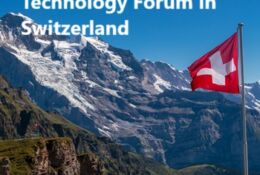 Event
EventIV Polish Economic and Technology Forum in Switzerland
The forum will be an opportunity to look into the future of sectors driven by advanced technologies …
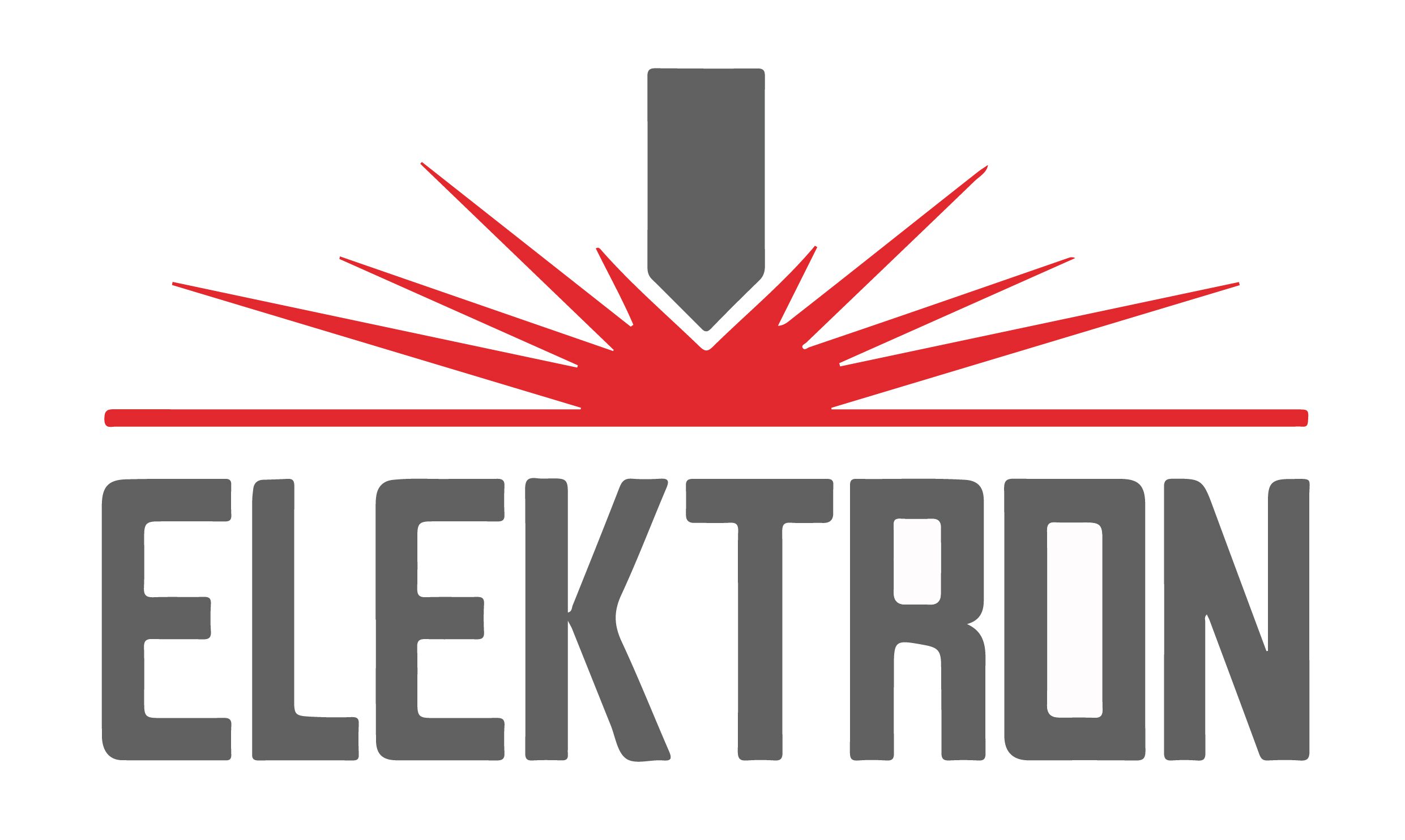
ELEKTRON SPÓŁKA Z OGRANICZONĄ ODPOWIEDZIALNOŚCIĄ
Aluminium and articles thereofIron, steel and articles thereofOther metals and articles thereofIndustrial machinery and mechanical appliances and parts thereofAgricultural machinery and parts thereofReady-made furniture and parts thereofVehicle parts (excluding engines)Other goodsShow allShow more Show lessElektron Sp. z o.o. is a leading Polish company specializing in advanced metal fabrication, offering precision laser cutting, sheet metal bending, pipe and profile bending, professional welding (MIG, MAG, TIG), and durable powder coating. We produce high-quality metal components, custom steel structures, metal furniture, and store equipment for global clients. Our operations comply with ISO 9001 and ISO 3834 standards, ensuring top-quality production, reliability, and efficient export services.
-
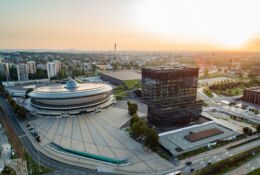 Article
ArticleDanone opens a new planning centre in Katowice
Not only the French see the potential of Katowice
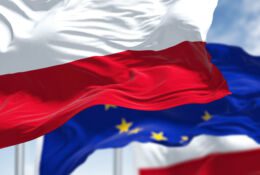 Article
ArticlePoland takes over the presidency of the Council of the European Union
The Polish Presidency is held under the slogan “Security, Europe!”
-
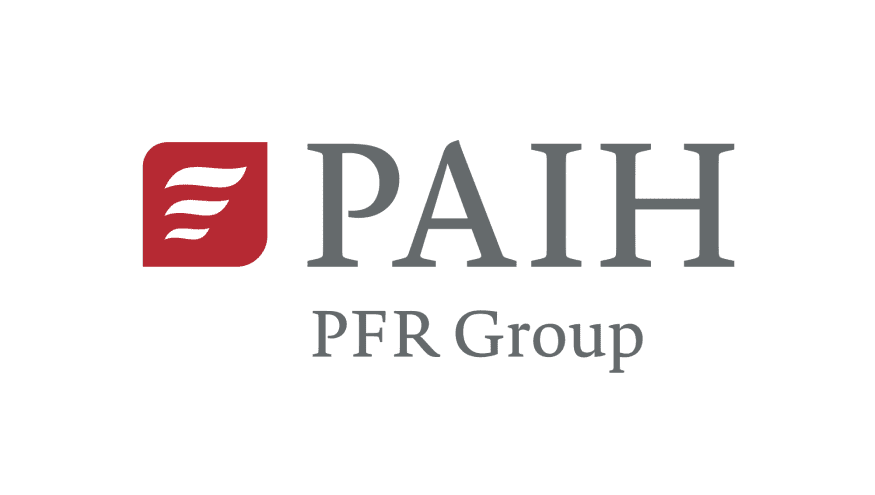 Institution
InstitutionPolish Investment and Trade Agency (PAIH)
The Polish Investment and Trade Agency (PAIH) is the partner of first-resort for entrepreneurs when …
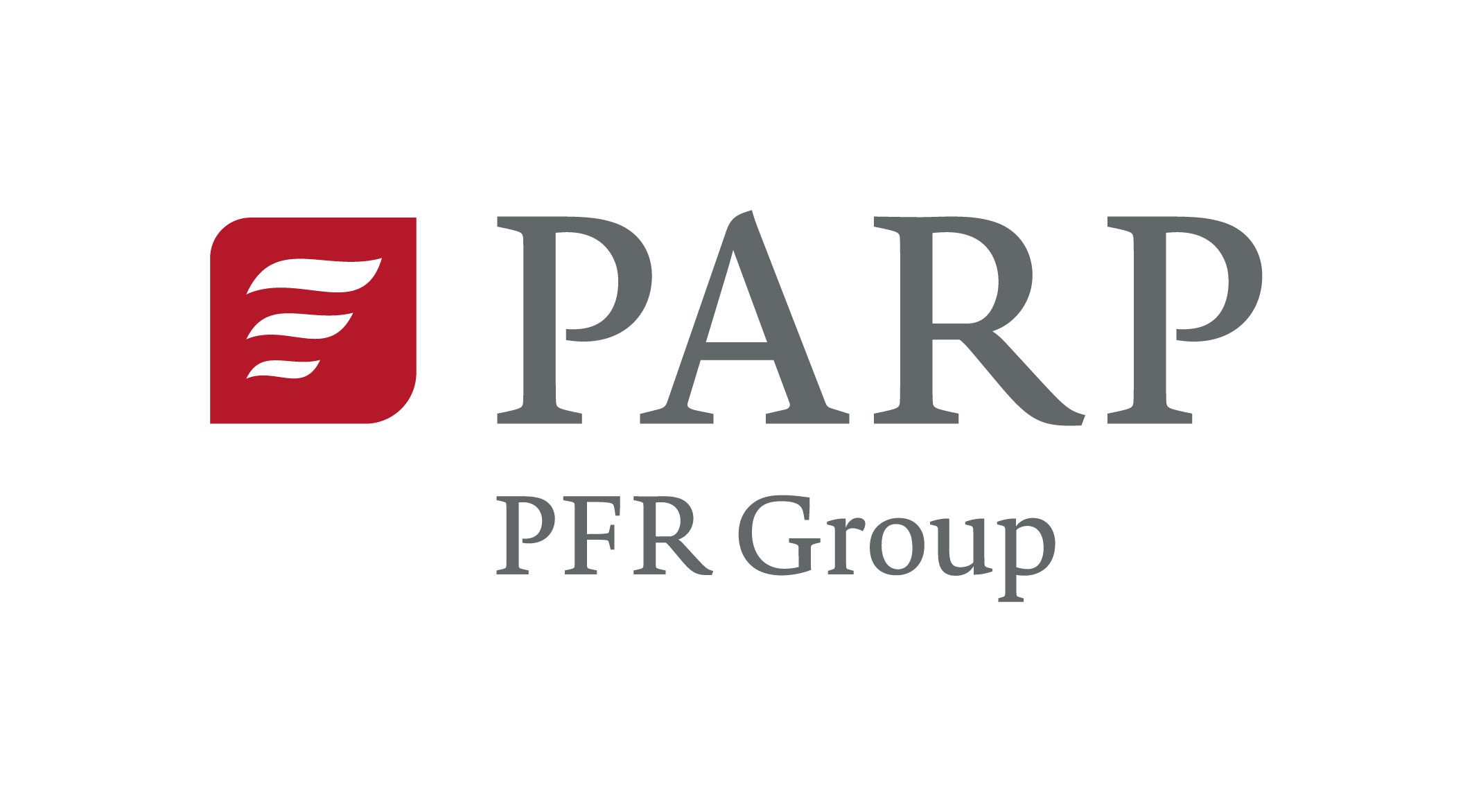 Institution
InstitutionPolish Agency for Enterprise Development (PARP)
Polish Agency for Enterprise Development (PARP) mission is an implementation of economical developme…
The Export Promotion Portal uses cookies to make it easier for users to use the website and for statistical purposes. If you do not block these files, you agree to their use and saving in the memory of your computer or other device. Remember that you can change your browser settings to block the storage of cookies. More information can be found in Privacy Policy and Terms and conditions.


